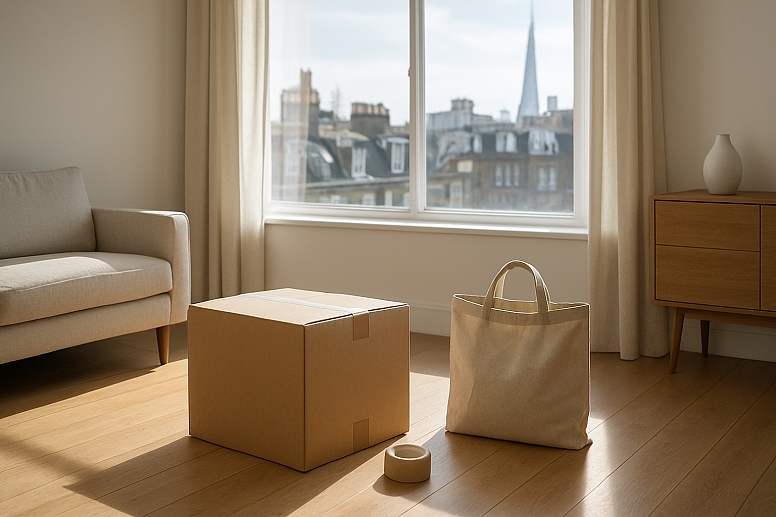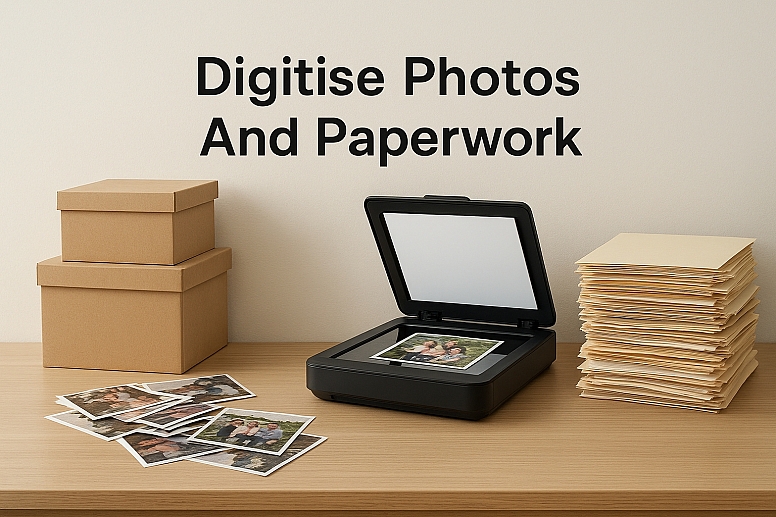
Ways to Keep Your Living Space Free from Unwanted Junk
Ever look around and wonder how the receipts, wires, and boxes manage to multiply overnight? Staying ahead of clutter is less about grand weekend purges and more about steady, bite-sized habits you can weave into daily life.
You’ll still have the odd bulky item that refuses to fit in the wheelie bin—when that happens, browsing services like SameDay Rubbish Removal Melbourne helps you understand disposal options without derailing your momentum.
Perform Regular Clutterbusts
Quick, focused clutterbusts keep mess from multiplying into a monster. Set a timer, blast energising music, and attack visible hotspots before they silently sprawl again.
- Pick one zone. Target tables, counters, or the entryway so momentum builds without feeling overwhelmed by the whole house.
- Use the four-box method. Label containers: keep, donate, recycle, trash; instant decisions reduce second-guess fatigue later.
- Move at sprint speed. Limiting sessions to fifteen minutes turns tidying into an energetic game instead of an endless chore.
- Finish with disposal. Carry donate and trash boxes straight to the car or bin so piles never linger in hallways.
Repeat these mini-raids daily or weekly, and you’ll notice surfaces staying clear, energy rising, and weekend deep cleans shrinking to almost nothing.
Designate Essential Item Spots
Everything deserves an easy-to-remember home. Assigning permanent parking spots for essentials prevents future junk piles and stops frantic searches that waste precious morning minutes.
Map High-Traffic Zones
Observe where backpacks, keys, and mail naturally land, then install hooks, trays, or slim shelves precisely there to capture clutter at the source.
Create Visual Cues
Labels, colour-coded bins, or simple chalk outlines remind everyone where items belong, reinforcing habits without nagging or complicated systems.
Leverage Vertical Real Estate
Mount pegboards behind doors or inside closets for hats, umbrellas, and tools, freeing floors while keeping daily gear one grab away.
Schedule Reset Rituals
End each evening with a two-minute sweep returning strays to their zones; consistency cements muscle memory and preserves tidy flow.
Unsubscribe From Mail Lists
Paper clutter sneaks in through the mailbox. Cutting off the source reduces sorting time, protects privacy, and keeps countertops clear for coffee mugs instead of catalogues.
- Opt out online. Use the FTC’s simple form at consumer.ftc.gov to slash prescreened credit offers and most direct-marketing mailers.
- Say “return to sender.” Mark unwanted mail pieces and pop them back; companies pay attention when postage costs stack up.
- Go paperless everywhere. Switch banks, utilities, and magazines to digital statements; archived PDFs beat overflowing file drawers.
- Post a polite note. A small “No advertisements, please” sticker near your mailbox deters local flyers and pizza menus.
With fewer envelopes arriving, incoming paper can be processed in seconds: recycle, file, or act—no towering stacks threatening to topple anymore.
Opt For Multifunctional Items
Choosing furniture and tools that multitask lets you own less while doing more, an essential strategy for apartments, dorms, and downsized lifestyles alike.
Invest in Convertible Furniture
Sleeper sofas, drop-leaf tables, and ottomans with storage transform rooms for guests or hobbies without adding extra square footage.
Favour Stackable Cookware
Nesting pots or collapsible silicone strainers reclaim cabinet space, preventing precarious towers that crash whenever you grab a pan.
Select Dual-Purpose Tech
A tablet that doubles as a cookbook and streaming screen curbs gadget creep, leaving counters open for actual cooking.
Borrow Before Buying
For single-use gear like carpet cleaners, coordinate sharing with neighbours or rent; you’ll skip owning bulky items entirely.
Digitise Photos And Paperwork

Shoeboxes of photos and bulging folders weigh down closets and minds. Scanning converts memories into megabytes, freeing shelves while safeguarding irreplaceable documents from damage.
Gather and Sort First
Group items by year or category so digital folders mirror logical timelines, making future searches delightfully easy.
Use a Reliable Scanner App
Phone apps with automatic edge detection create crisp PDFs quicker than flatbed scanning every page individually.
Back Up in Two Places
Store files on cloud and external drive; redundancy ensures hurricanes or hard-drive failures never erase your history.
After verifying digital copies, shred sensitive papers or recycle photo duplicates, instantly reclaiming drawers for more inspiring purposes.
Host A Yard Sale
Turning clutter into cash motivates even reluctant declutterers. A weekend yard sale clears rooms, fuels community interaction, and funds your next mini-vacation.
- Plan six weeks out. Mark calendars, gather supplies, and check local permit rules to avoid last-minute stress.
- Curate appealing displays. Group items by type on clean tables; attractive layouts encourage browsing and bigger purchases.
- Price to move. Shoppers expect bargains; aim for one-third retail and watch piles disappear rather than return inside.
- Schedule a charity pickup. Arrange a post-sale donation so leftovers vanish, not re-clutter the garage.
Celebrate earnings with experiences, not stuff, reinforcing the joyful link between letting go and newfound freedom.
Maintain An Ongoing Donation Box
A permanent donation bin creates a one-way exit for unloved items. The moment something feels redundant, drop it and forget guilt-laden second thoughts.
- Keep it visible. Position the box near the laundry room or closet so decisions happen during daily routines.
- Set capacity rules. When the box fills, schedule a drop-off; the built-in deadline prevents overflow.
- Track tax receipts. Staple donation slips into a folder for painless deductions come April.
- Invite household input. Family members gain autonomy—and wardrobes stay trim—when everyone contributes spontaneously.
This simple container turns decluttering from occasional events into a smooth, continuous habit requiring almost zero extra effort.
Minimise Visual Clutter
Even tidy rooms can feel chaotic when surfaces brim with knick-knacks. Streamlining what eyes see promotes calm, focus, and an illusion of spaciousness.
Adopt a Clear Counter Policy
Limit kitchen counters to daily appliances; stash the rest in cabinets so meal prep feels like working on a blank canvas.
Corral Small Items
Use trays or baskets to group remotes, chargers, and candles; defined borders make collections look intentional, not scattered.
Rotate Décor Seasonally
Store half your decorations and swap quarterly; freshness rises while shelves stay breathable instead of crowded year-round.
Lean on Closed Storage
Cubbies with doors disguise necessary but unsightly supplies, maintaining streamlined lines without sacrificing function.
Schedule Routine Purging Sessions
Mark quarterly purge dates on your planner the same way you book dentist appointments. Regularity prevents accumulation and makes each session surprisingly quick and painless.
Set Specific Goals
Choose targets—closet, bookshelf, pantry—so effort feels focused and measurable instead of vague decluttering aspirations.
Create a Reward System
Treat completed purges with a movie night or hike, reinforcing positive associations with letting go.
Review Incoming Items
During each session, assess purchases from the last quarter, ensuring new belongings truly earn their space.
Track Progress Visibly
Snap before-and-after photos; visual evidence motivates future declutters and reminds you how far the home has evolved.
Invite Accountability
Share goals with friends or minimalism communities—Reddit’s r/declutter cheers milestones and offers fresh strategies.
Living in a city where space is our most precious commodity, the battle against clutter is a London essential. It’s not about grand purges but the daily habits: the two-minute evening reset of the entryway, the permanent donation box for a fast-fashion exit strategy, and the savvy use of vertical real estate with IKEA pegboards.
For the Londoner, it’s about choosing stackable cookware for a tiny kitchen and digitising those shoeboxes of memories to free up a whole cupboard. And when you’re finally faced with a bulky item your wheelie bin—or your Uber—can’t handle, knowing your local council collection options or a reliable same-day service ensures your hard-won momentum isn’t derailed. It’s this steady, conscious effort that keeps our flats feeling like sanctuaries, not storage units.
Clutter-Free Momentum
You’ve learned practical habits; now commit. Small, consistent actions prevent relapse and keep rooms functional. When items outgrow your car boot or council limits, explore the local collection zones available for fast pickup. Your vigilance today shapes a lighter, calmer home tomorrow. Keep moving unnecessary stuff, not storing at all.











